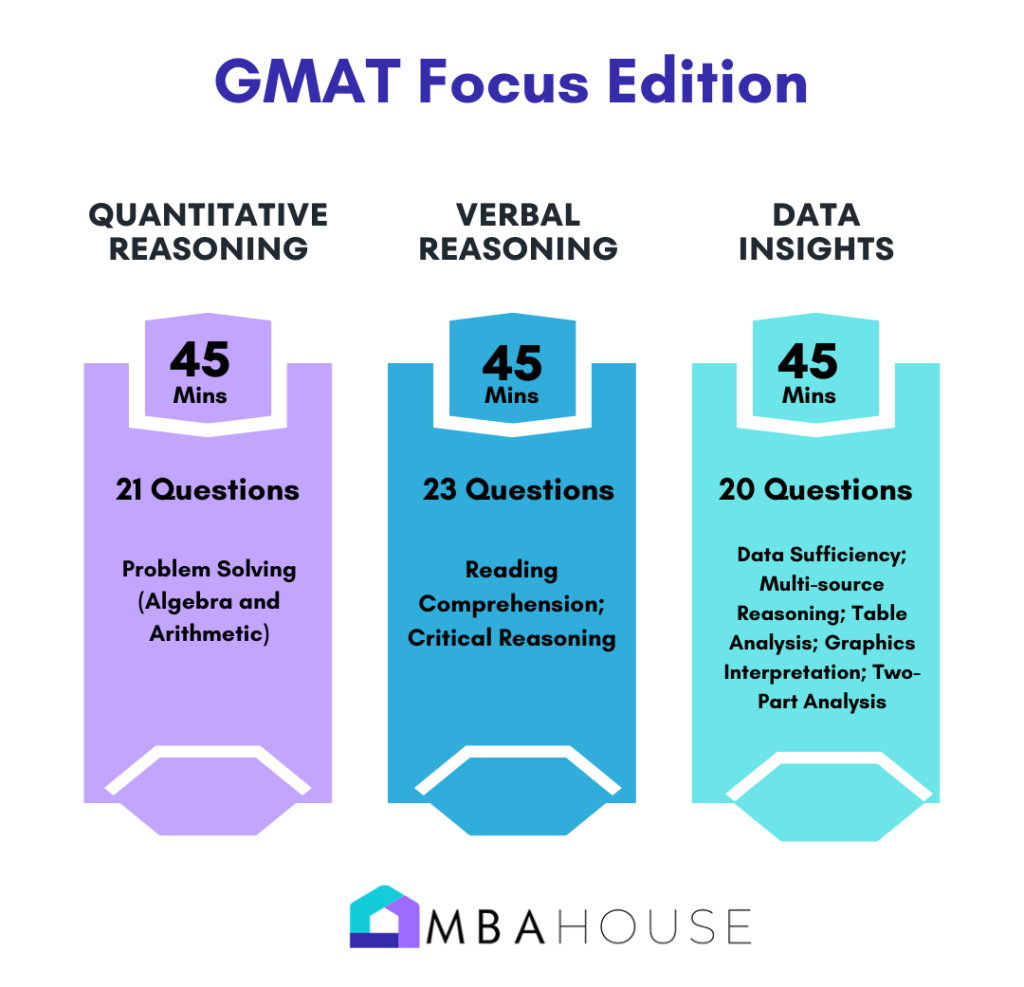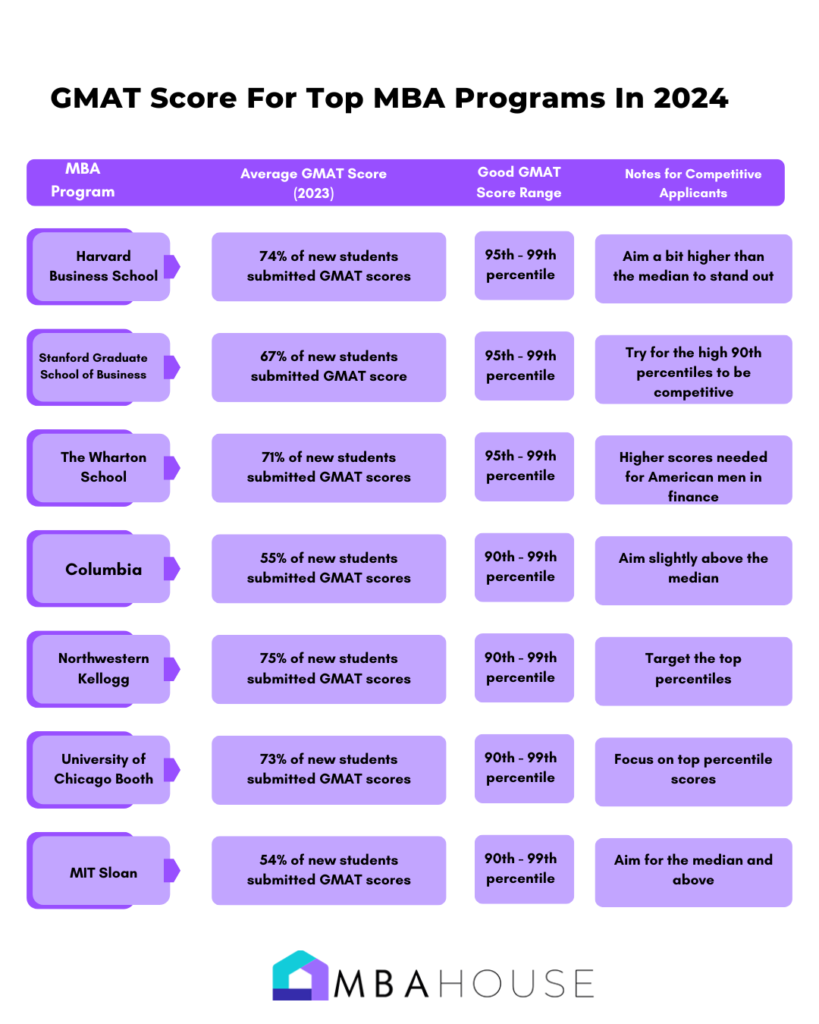Are you aiming for a top-tier business school and wondering how to tackle the GMAT? On November 7, 2023, GMAC launched the GMAT Focus Edition 2024, a revamped version designed to better assess the skills required in today’s dynamic business environment.
Many students ask themselves, “Can an average student really make a 735+ score?” This question can feel even more challenging if you’re balancing GMAT preparation with a full-time job.
It’s a valid question! While the GMAT is challenging, an average student can achieve a high score with proper preparation for the GMAT. The key is to have a well-structured GMAT study plan that caters to your strengths, weaknesses, and learning style.
But where do you even begin? How do you create an effective GMAT study plan? And what exactly is a “good” GMAT score? These are all questions that have been weighing on your mind, isn’t it? Many students struggle with these questions, and it’s completely normal to feel overwhelmed.
Let’s begin with the first question: What’s on the GMAT Focus Edition?

Now, let us look at the key changes between the traditional GMAT and the GMAT Focus Edition 2024
| Change | GMAT | GMAT Focus Edition 2024 |
| Number of Sections | Four: Quantitative, Verbal, Integrated Reasoning, Analytical Writing | Three: Quantitative Reasoning, Verbal Reasoning, Data Insights |
| Test Duration | 3 hours and 7 minutes | 2 hours and 15 minutes |
| Scoring Range | 200-800 | 205-805 |
| Ability to Review Answers | Not available | Available |
| Detailed Score Report | Available for purchase | Included with registration |
| Content Changes | Geometry in Quantitative; Sentence Correction in Verbal | Removed Geometry in Quantitative; Removed Sentence Correction; Added Data Insights |
| Exam Duration | 3 hours 7 minutes | 2 hours 15 minutes |
| Question Type | Multiple choice questions + One essay | All multiple-choice questions |
| Number of Questions | Verbal – 36, Quant – 31, IR – 12, AWA – 1 | Verbal – 23, Quant – 21, Data Insights – 20 |
| Exam Cost | $275 | $275 |
| Individual Section Duration | Quantitative reasoning – 62 minutes; Verbal reasoning – 65 minutes; IR – 30 minutes; AWA – 30 minutes | 3 sections of 45 minutes each |
| Section Order | Order 1: AWA and IR > Quant > Verbal; Order 2: Verbal > Quant > IR and AWA; Order 3: Quant > Verbal > IR and AWA | Any order possible |
| Flexibility | No option to bookmark, edit, or review questions | Bookmark and review as many questions as possible; Change up to 3 answers per section |
| Score Sending | Select five schools to send the score for free before starting the exam | Send scores to 5 schools for free after knowing your score in both the online and test center exam |
| Performance Insights | Insights into performance available with the purchase of an Enhanced Score Report (ESR) for an additional $30 | Improved official score report with detailed insights into your performance |
| Attempts | Five GMAT exam attempts during a rolling 12-month period and eight total lifetime attempts | Five GMAT exam attempts during a rolling 12-month period and eight total lifetime attempts |
We are sure the next question after looking at the changes you must have is:
How Long to Study for the GMAT Focus Edition?
It’s not just about clocking in the hours but making those hours count. Knowing what is a good GMAT score and how to achieve it can make all the difference in your preparation journey.
The new GMAT Focus Edition helps students prepare faster because it covers less content. They removed the Analytical Writing Assessment, Sentence Correction in Verbal, and Geometry in Quant, streamlining the exam.
But remember that its main goal, to see if you’re ready for business school, hasn’t changed.
To achieve a score in the range of 705-755 on the GMAT Focus Edition, most students typically need to dedicate around 360 hours, which is approximately 6 months of focused GMAT preparation. This timeframe allows you to have a thorough understanding of the content, practice test-taking strategies, and improve of critical thinking and problem-solving skills necessary to excel in the exam.
And that’s where a GMAT prep course and an experienced mentor come into play. They can provide valuable direction and structure, helping you maximize your study time effectively.
Now, Let’s Look At A Good GMAT Score For Top MBA Programs In 2024

For many aspirants who are juggling their jobs and GMAT prep, time management is key and with the GMAT Focus Edition 2024, creating a strategic GMAT study plan is crucial. A well-designed course can help you build a schedule, allowing you to manage your preparation efficiently and finish on time.
Let’s dive into how you can create one that works for you.
Preparing for the GMAT Focus Edition: A Step-by-Step Approach
Let’s dive deeper into the process of creating an effective study plan for the GMAT Focus Edition that will set you up for success on test day!

Step 1: Assess Your Current Level and Set Your Target Score
Understanding Your Starting Point
Alright, let’s start by figuring out where you’re at right now. Taking a practice test is super important to understand your strengths and weaknesses on the GMAT. This will help you create a GMAT study plan for 2024 that’s tailored just for you.
When you take that practice test, pay close attention to how you do in each section – Quant, Verbal, and Essay. Identify the areas where you’re crushing it and the ones that need a little more love. This information is gold when it comes to shaping your study plan for the GMAT focus edition.
Setting a Realistic Target Score
Okay, now that you know where you stand, it’s time to set your target GMAT score. Here’s the thing – there’s no one-size-fits-all “good GMAT score.” It really depends on the schools you’re applying to.
Do some research and find out the average GMAT scores for your dream programs. That’s going to be your benchmark. Aim for a score that will make you a competitive applicant. And keep in mind that some programs might have higher expectations for certain groups, like American men in finance applying to Wharton.
To determine your target score, look at the average GMAT scores of the schools you’re interested in. For example, if you’re aiming for Harvard Business School, you’ll want to shoot for a score in the 95th to 99th percentile range. For Columbia, a score in the 90th to 99th percentile would be considered a good GMAT score.
Remember, the key is to set a realistic target based on your specific goals and the expectations of your target schools. Don’t aim too low, but also be honest about what you can achieve with focused preparation.
Step 2: Build a Structured Study Schedule
Creating a GMAT Study Calendar
All right, now that you know your starting point and your target, let’s get the best GMAT prep plan in place. The key is to create a calendar that works for your schedule and keeps you on track.
First, figure out how much time you can realistically dedicate to studying each week. Don’t overcommit – be honest with yourself about your other commitments. Aim for at least 10-15 hours per week, but make sure it’s sustainable.
Then, break down your study plan into smaller, manageable chunks. Focus on one or two topics at a time, and set specific goals for each study session, like completing a certain number of practice questions or reviewing a concept.
Allocating Time for Each Section
When you’re preparing for the GMAT Focus Edition 2024, it’s important to make sure you’re spending the right amount of time on each section of the exam. Depending on your strengths and weaknesses, you might need to adjust your focus.
For example, if Quantitative Reasoning is your weak spot, you’ll want to devote more time to practicing math concepts and strategies. If Verbal Reasoning is where you struggle, you’ll need to really hone in on improving your reading comprehension and sentence correction skills.
Remember, it’s all about balance. Take a look at your diagnostic test results and identify the areas that need the most attention. Then, create a plan that allows you to spend the appropriate amount of time on each section, based on your individual needs.
Step 3: Choose the Best GMAT Prep Resources
Selecting a GMAT Prep Course
Now that you have a solid GMAT study plan in place, it’s time to choose the best prep resources to help you achieve your target score. One of the most popular options is enrolling in a GMAT prep course. These courses provide structured guidance, expert instruction, and comprehensive study materials to help you stay on track and make steady progress.
When selecting a GMAT prep course, consider the following factors:
- Instructor Qualifications: Look for courses taught by experienced GMAT instructors who have scored in the 99th percentile themselves. Their expertise can provide valuable insights and strategies.
- Course Format: Decide whether you prefer an in-person, online, or hybrid course format based on your learning style and schedule. Online courses offer more flexibility, while in-person courses provide a more interactive experience.
- Course Content: Ensure that the course covers all the sections of the GMAT, including Quantitative Reasoning, Verbal Reasoning, and Data Insights. The course should also provide ample practice questions and full-length practice tests.
- Student Support: Look for courses that offer personalized feedback, one-on-one tutoring, and access to instructors for questions and clarification.
- Reputation and Reviews: Research the course provider’s reputation and read reviews from past students to gauge the quality of instruction and overall satisfaction.
Utilizing GMAT Prep Classes and Online Resources
While a prep course can be a valuable resource, it’s not the only option available. There are many other GMAT prep resources you can use to supplement your studies:
- Official GMAT Practice Tests: Take advantage of the official practice tests provided by the GMAT exam administrators. These tests are the closest representation of the actual exam and can help you identify areas for improvement.
- Online Resources: Explore free online resources such as forums, blogs, and YouTube videos that offer tips, strategies, and explanations for GMAT concepts. These resources can provide a fresh perspective and help reinforce your understanding.
- GMAT Prep Books: Invest in high-quality GMAT prep books that provide comprehensive content review, practice questions, and strategies for each section of the exam. Look for books written by experts and endorsed by top business schools.
- Flashcards and Apps: Use flashcards or mobile apps to practice vocabulary, math concepts, and logical reasoning on the go. These resources can help you make the most of your spare time and reinforce your learning.
Wrapping Up
Building an effective GMAT study plan for Focus Edition 2024 involves three key steps: assessing your current level with a diagnostic test, creating a structured study schedule, and selecting the right GMAT prep resources.
Remember, preparing for the GMAT is a marathon, not a sprint. It requires dedication, consistency, and a positive attitude. Stay motivated by keeping your goals in sight and celebrating your progress along the way.
Only use official GMAT materials and be cautious with the numerous free online videos or paid GMAT software that are not adaptive to your needs and do not accurately reflect real GMAT official questions
If you’re looking for a comprehensive and effective way to prepare for the GMAT Focus Edition, look no further than MBA House — Our comprehensive packages support and guidance, empowering you to achieve your desired scores.
Each package includes all course preparation, tutoring, double peer reviews of application elements, interview training, scholarship strategy, and support from our teams in New York and Miami.
Our practice, with an in-house team of full-time, dedicated teachers and MBA consultants, delivers effective strategies that allow our students to gain admission to the B-School of their dreams!





Social Media